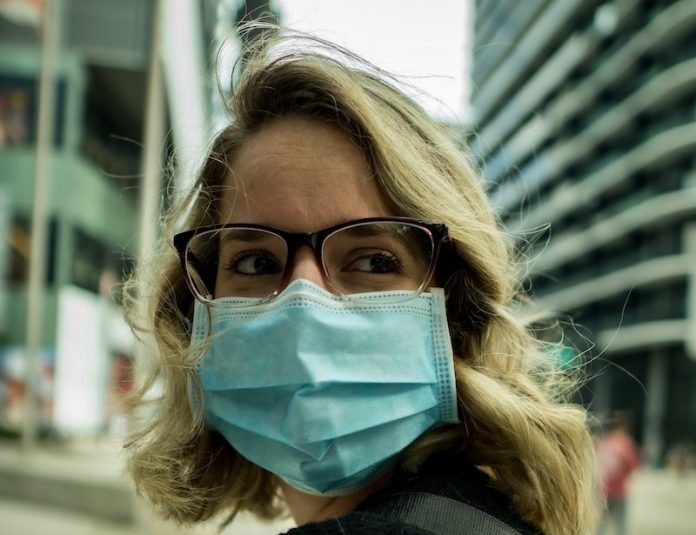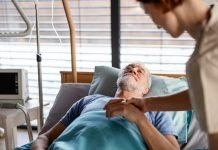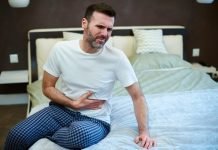
The effectiveness of face masks has been a hotly debated topic since the emergence of COVID-19.
In a new study from the University of Central Florida, researchers offer more evidence that they work.
They found that face masks reduce the distance airborne pathogens could travel, when speaking or coughing, by more than half compared to not wearing a mask.
The team says the research provides clear evidence and guidelines that 3 feet of distancing with face coverings is better than 6 feet of distancing without face coverings.
In the study, the team tested 11 males and 3 females, ages 21 to 31.
Each participant recited a phrase and simulated a cough for 5 minutes without a face-covering, with a cloth face covering, and with a three-layered disposable surgical mask.
Using diagnostic tools commonly used for understanding how fluids move through air, the researchers measured the distance in all directions that droplets and aerosols travel from people speaking and coughing, when wearing different types of masks and when not.
The researchers found that a cloth face covering reduced emissions in all directions to about two feet compared to the four feet of emissions produced when coughing or speaking with no mask on.
The reduction was even greater when wearing a surgical mask, which reduced the distance coughing and speaking emissions traveled to only about half a foot.
The findings are important as airborne viral pathogens, such as SARS-CoV-2, can be encapsulated and transmitted through liquid droplets and aerosols formed during human respiratory functions such as speaking and coughing.
Knowing ways to reduce this transmission distance can help keep people safe and aid in managing responses to pandemics, such as COVD-19, which has resulted in global-scale infection, health care system overloads, and economic damage.
These responses could include relaxing some social distancing guidelines when masks are worn.
If you care about Covid, please read studies about new findings that could help treat blood clots in COVID-19, and what to know about your treatment options for COVID-19.
For more information about health, please see recent studies about why do we keep getting new coronavirus variants, and results showing this drug could help treat lung damage in COVID-19.
The study is published in the Journal of Infectious Diseases. One author of the study is Kareem Ahmed.
Copyright © 2022 Knowridge Science Report. All rights reserved.




